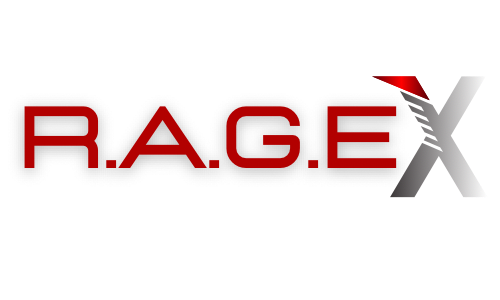Draft Agreement on Cessation of Hostilities and Enhanced Security Commitments between Israel and Lebanon
Date: October 26, 2024

This draft agreement, facilitated with the involvement of the United States and international partners, aims to implement a sustainable cessation of hostilities between Israel and Lebanon. It includes provisions for international monitoring, enhanced security measures, and developmental support for Lebanon, in alignment with UN Security Council Resolutions (UNSCR) 1701 and 1559. The key elements and commitments in the agreement are outlined below.
Key Elements of the Agreement
1. Full Cessation of Hostilities
Israel and Lebanon have agreed to a full cessation of hostilities within a defined timeframe. This measure seeks to halt ongoing escalations along the Blue Line, promoting stability and reducing the risk of further military engagement. Both parties are committed to respecting this cessation and avoiding any offensive actions against each other.
2. Compliance with UNSC Resolutions
The agreement emphasizes the need for full compliance with UNSCR 1701, which seeks to prevent the rearmament of non-state armed groups in Lebanon and promote peace. UNSCR 1559 is also referenced, reinforcing the disarmament of militias and ensuring that only state forces are authorized within Lebanese territory.
3. Role of Armed Groups
All non-state armed groups, including Hezbollah, are required to cease any hostile actions toward Israel. Israel, in turn, agrees not to conduct offensive operations within Lebanon. This commitment by both sides aims to prevent actions that could destabilize the border and disrupt the peace process.
4. Right to Self-Defense
Both Israel and Lebanon retain the right to self-defense as recognized by international law. This clause ensures that either party can respond if faced with direct, imminent threats to their sovereignty or security.
5. Independent Monitoring and Enforcement Mechanism (IMEM)
The United States will lead an international monitoring body, the IMEM, which will include representatives from the UN, European partners, and regional stakeholders. This mechanism will oversee compliance with the agreement, investigate any reported violations, and ensure that both Israel and Lebanon adhere to the agreed terms. The IMEM will also have the authority to recommend corrective actions when necessary.
6. Lebanese Control over Arms and Border Security
The Lebanese government commits to regulating the entry, sale, and distribution of arms within its borders, particularly in areas close to Israel. The Lebanese Armed Forces (LAF) will monitor border crossings and prevent unauthorized arms smuggling. This measure aims to uphold state authority over security matters and prevent rearmament by non-state actors.
7. Israeli Withdrawal and Lebanese Deployment
Israel will complete a phased withdrawal of its forces from specified areas within seven days following the cessation of hostilities. Concurrently, the LAF will deploy to key border areas, ensuring state-controlled security and preventing unauthorized activities. This process will be coordinated with the UN’s peacekeeping forces (UNIFIL) to maintain transparency.
8. Strengthening the Lebanese Armed Forces (LAF)
The United States, along with international allies, will support the LAF by providing resources and training to strengthen its capacity, size, and effectiveness. This support is aimed at enhancing the LAF’s ability to exercise effective control over Lebanese territory, specifically north of the Blue Line.
9. Incentives and Sanctions
The agreement includes provisions for both incentives and sanctions. The IMEM is authorized to impose financial sanctions and diplomatic measures on any party found in violation of the agreement. Conversely, incentives may be offered to encourage compliance, fostering an environment conducive to sustained peace.
10. Urgent Response to Border Threats
The agreement specifies that any imminent threats near the Israel-Lebanon border will be treated with the highest urgency. Israel retains the right to respond in self-defense to any immediate threats within the areas specified in the agreement. The IMEM will work closely with both countries to manage such situations, minimizing the risk of escalation.
11. Intelligence and Security Coordination
The United States and Israel will engage in intelligence sharing to monitor potential violations, such as arms smuggling or infiltration by non-state actors. Israel may share critical intelligence with Lebanese authorities or the IMEM to address violations effectively. This cooperation is intended to enhance border security and prevent destabilizing activities.
12. Israeli Surveillance Overflights
Israel is permitted to conduct overflights within Lebanese airspace for intelligence, surveillance, and reconnaissance purposes. These flights will be conducted in a way that minimizes the impact on Lebanese civilians, avoiding breaking the sound barrier over populated areas. Israel’s flights will focus solely on monitoring imminent threats to ensure compliance with the agreement.
13. Recognition of the Blue Line
The United States acknowledges the Blue Line as a provisional boundary between Israel and Lebanon, emphasizing its importance as a reference point for any future border determinations. This recognition supports efforts to resolve territorial disputes and promote long-term stability in the region.
14. Developmental Support for Lebanon
The United States, alongside other international partners, will provide economic and developmental assistance to Lebanon. This support is aimed at enhancing stability by addressing the socio-economic challenges that may contribute to unrest. Programs focused on capacity building, infrastructure improvement, and economic growth will be prioritized to foster stability.
Implementation and Timeline
The initial implementation phase will span 60 days, during which both parties will gradually adhere to the commitments. Key actions include Israel’s phased withdrawal, LAF’s deployment, and the IMEM’s establishment for ongoing monitoring and enforcement. UNIFIL will play a supportive role in ensuring transparency and reporting compliance.
Ongoing Indirect Negotiations
Upon the completion of the initial 60-day period, the United States will facilitate indirect negotiations between Israel and Lebanon to resolve any remaining issues. The aim is to achieve the full implementation of UNSCR 1701 and address disputed areas along the Blue Line. These negotiations underscore a commitment to diplomacy and a sustainable peace framework.








This comprehensive agreement sets a framework for a sustained cessation of hostilities between Israel and Lebanon, backed by international monitoring and robust security measures. The combined efforts of the United States, UNIFIL, and international partners underscore a collaborative approach to stabilizing the Israel-Lebanon border and advancing peace in the region. Through this agreement, both nations commit to fostering a peaceful coexistence, while the international community provides essential support to facilitate compliance, strengthen state security, and encourage long-term development.















